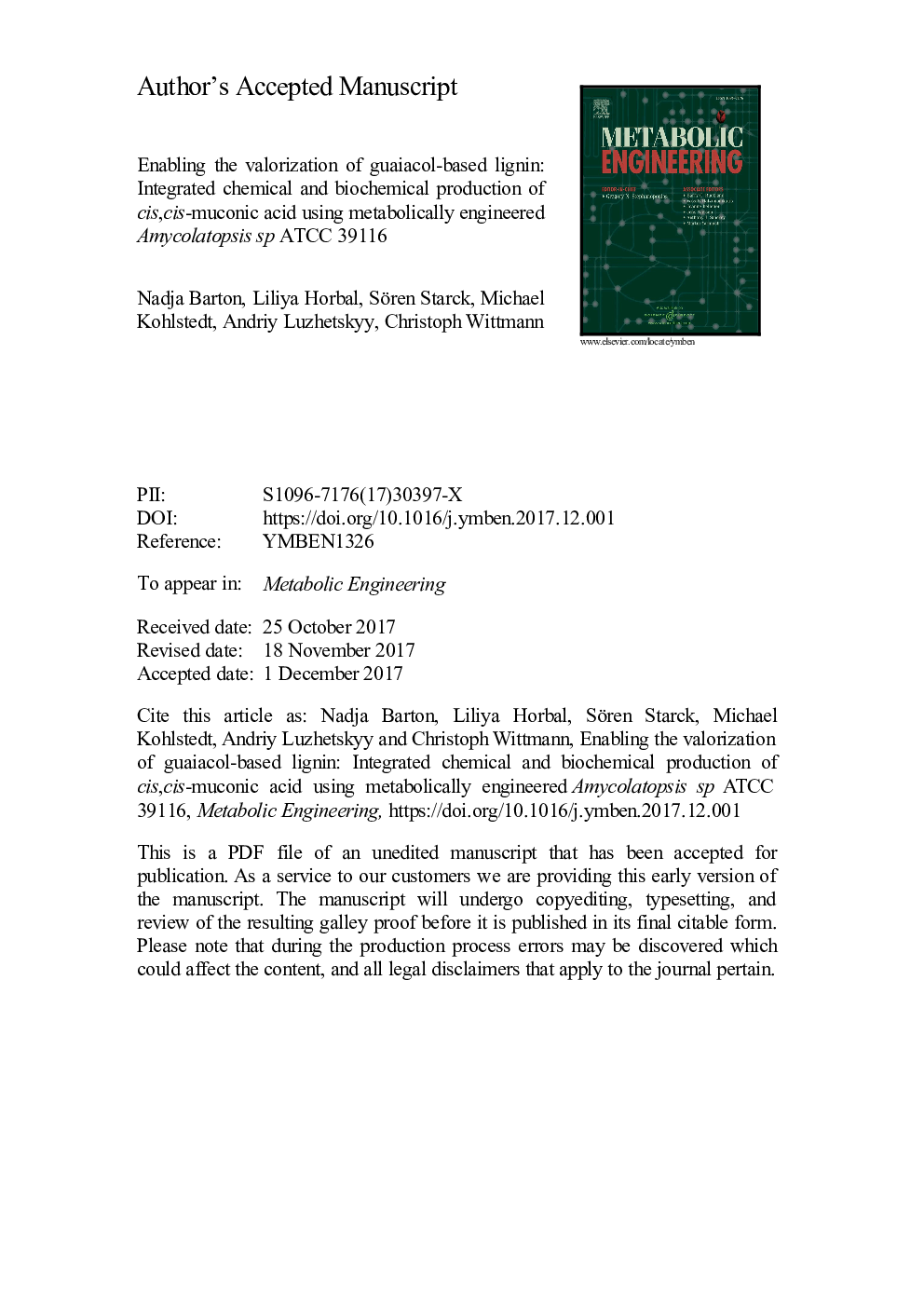| Article ID | Journal | Published Year | Pages | File Type |
|---|---|---|---|---|
| 6494138 | Metabolic Engineering | 2018 | 49 Pages |
Abstract
Lignin is nature's second most abundant polymer and displays a largely unexploited renewable resource for value-added bio-production. None of the lignin-based fermentation processes so far managed to use guaiacol (2-methoxy phenol), the predominant aromatic monomer in depolymerized lignin. In this work, we describe metabolic engineering of Amycolatopsis sp. ATCC 39116 to produce cis,cis-muconic acid (MA), a precursor of recognized industrial value for commercial plastics, from guaiacol. The microbe utilized a very broad spectrum of lignin-based aromatics, such as catechol, guaiacol, phenol, toluene, p-coumarate, and benzoate, tolerated them in elevated amounts and even preferred them over sugars. As a next step, we developed a novel approach for genomic engineering of this challenging, GC-rich actinomycete. The successful introduction of conjugation and blue-white screening, using β-glucuronidase, enabled tailored genomic modifications within ten days. Successive deletion of two putative muconate cycloisomerases from the genome provided the mutant Amycolatopsis sp. ATCC 39116 MA-2, which accumulated 3.1 g L-1 MA from guaiacol within 24 h, achieving a yield of 96%. The mutant was found also capable to produce MA from a guaiacol-rich true lignin hydrolysate, obtained from pine through hydrothermal conversion. This provides an important proof-of-concept to successfully coupling chemical and biochemical process steps into a value chain from the lignin polymer to an industrial chemical. In addition, Amycolatopsis sp. ATCC 39116 MA-2 was able to produce 2-methyl MA from o-cresol (2-methyl phenol), which opens possibilities towards polymers with novel architecture and properties.
Keywords
Related Topics
Physical Sciences and Engineering
Chemical Engineering
Bioengineering
Authors
Nadja Barton, Liliya Horbal, Sören Starck, Michael Kohlstedt, Andriy Luzhetskyy, Christoph Wittmann,
